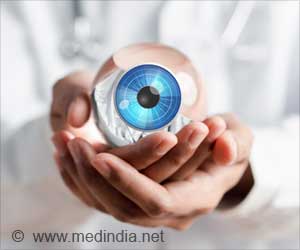Rensselaer researchers have developed a computer algorithm that can help trace the genetic ancestry of thousands of individuals in minutes, without any prior knowledge of their background.
The new algorithm works by looking for specific DNA markers known as single nucleotide polymorphisms, or SNPs. from something as basic a simple cheek swab.Petros Drineas, senior author of the study and assistant professor of computer science at Rensselaer Polytechnic Institute, said, this is unlike previous computer programs of its kind that required prior knowledge of an individual’s ancestry and background.
He said the researchers, nevertheless, used genetic data from previous studies to perform and confirm their research, including the new HapMap database, which is working to uncover and map variations in the human genome.
“Now that we have found that the program works well, we hope to implement it on a much larger scale, using hundreds of thousands of SNPs and thousands of individuals,” said Prof. Drineas.
“The program will be a valuable tool for understanding our genetic ancestry and targeting drugs and other medical treatments because it might be possible that these can affect people of different ancestry in very different ways,” he said.
Prof. Drineas said the program would help people understand their unique background besides aiding historians and anthropologists in their study of were different populations originated and how humans became such a hugely diverse global study.
Advertisement
Understanding our unique genetic makeup is a crucial step to unravelling the genetic basis for complex diseases. Although the human genome is 99 percent the same from human to human, it is that one percent that can have a major impact on our response to diseases, viruses, medications, and toxins.
Advertisement
Prof. Drineas said, the program has proved more than 99 percent accurate and has correctly identified the ancestry of hundreds of individuals, during tests.
This included people from genetically similar populations (such as Chinese and Japanese) and complex genetic populations like Puerto Ricans who hail from a variety of backgrounds including Native American, European, and African, he said.
“When we compared our findings to the existing datasets, only one individual was incorrectly identified and his background was almost equally close between Chinese and Japanese,” Prof. Drineas said.
The international research team included, in addition to Prof. Drineas, lead author Peristera Paschou from the Democritus University of Thrace in Greece; William Rodriguez-Cintron from the University of Puerto Rico School of Medicine in San Juan, Elad Ziv, Esteban G. Burchard, and Shweta Choudhry from the University of California, and Michael W. Mahoney from Yahoo Research in California, (both US).
The team’s findings will be published in the September 2007 edition of the journal PLoS Genetics.
Source-ANI
SRM/S







